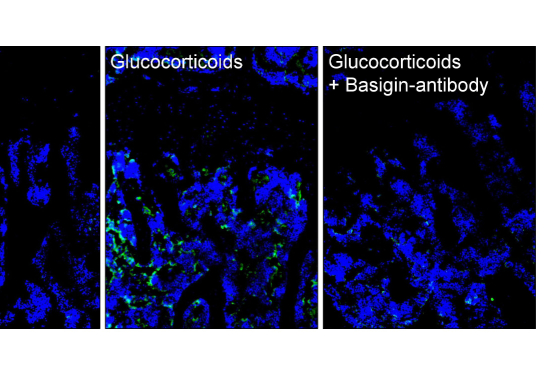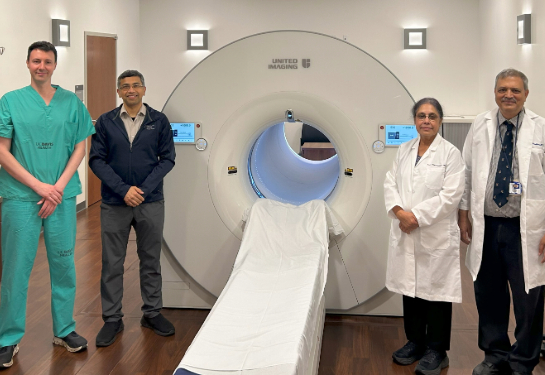UC Davis Health study finds potential keys to reversing bone loss
Researchers uncover a key protein and a promising strategy to prevent bone damage from steroids
A new study from UC Davis Health researchers reveals a promising new way to treat various bone loss conditions, including age-related osteoporosis.
The rheumatology and orthopaedic researchers discovered that a protein called Basigin, which gets activated in stem cells when people take steroids, is a key reason why bones weaken and blood vessels in bone tissue become abnormal. By blocking Basigin, they were able to protect and even restore bone health in mice, suggesting a promising new treatment path.
Their findings were published in Nature Communications.
“This research is a major step forward in understanding how steroid treatments affect bone health,” said Thomas H. Ambrosi, assistant professor in the Department of Orthopaedic Surgery and co-corresponding author of the study. “Identifying Basigin as a driver of bone deterioration opens the door to targeted therapies that could help patients maintain strong, healthy bones — even while undergoing long-term glucocorticoid treatment.”
“Identifying Basigin as a driver of bone deterioration opens the door to targeted therapies that could help patients maintain strong, healthy bones — even while undergoing long-term glucocorticoid treatment.”—Thomas H. Ambrosi
How glucocorticoids affect bone health
Glucocorticoids (like prednisone) are one of the most widely used anti-inflammatory drugs prescribed for conditions like asthma, arthritis, autoimmune diseases and even COVID-19. However, long-term use can weaken bones and increase fracture risk.
In this study, researchers examined how skeletal stem cells — which are responsible for building and maintaining bones — interact with blood vessel cells in bone tissue. They found that glucocorticoids disrupted the normal function of these stem cells, caused by the release of a protein called Basigin. This protein also interfered with blood vessel formation, which further contributed to bone deterioration.
“During the study, we recognized that Basigin is a promising new target for protecting bone health,” explained Nancy E. Lane, distinguished professor of rheumatology at UC Davis Health and corresponding author of the study. “We believed that if we could find a way to block this protein, we might be able to prevent or even reverse the bone damage caused by long-term steroid use, while still preserving the benefits of glucocorticoid therapy.”
Targeting Basigin to restore bone strength
Researchers tested their theory by using an antibody to block Basigin and also genetically removing it from skeletal stem cells.
They found that blocking Basigin not only prevented bone loss but also restored bone strength during steroid exposure. When examining bones of older mice with poor skeletal health, they also noticed elevated Basigin levels. Fittingly, geriatric mice, around two years old, showed improved bone mass after receiving the Basigin-blocking antibody.
“This discovery opens the door to new treatments that protect bone health during steroid therapy and aging — potentially improving quality of life for millions.”—Nancy E. Lane
“These exciting results suggest this approach could lead to a new treatment for bone loss conditions, including age-related osteoporosis and other types of tissue damage that come with aging,” Lane said. “This discovery opens the door to new treatments that protect bone health during steroid therapy and aging — potentially improving quality of life for millions.”







